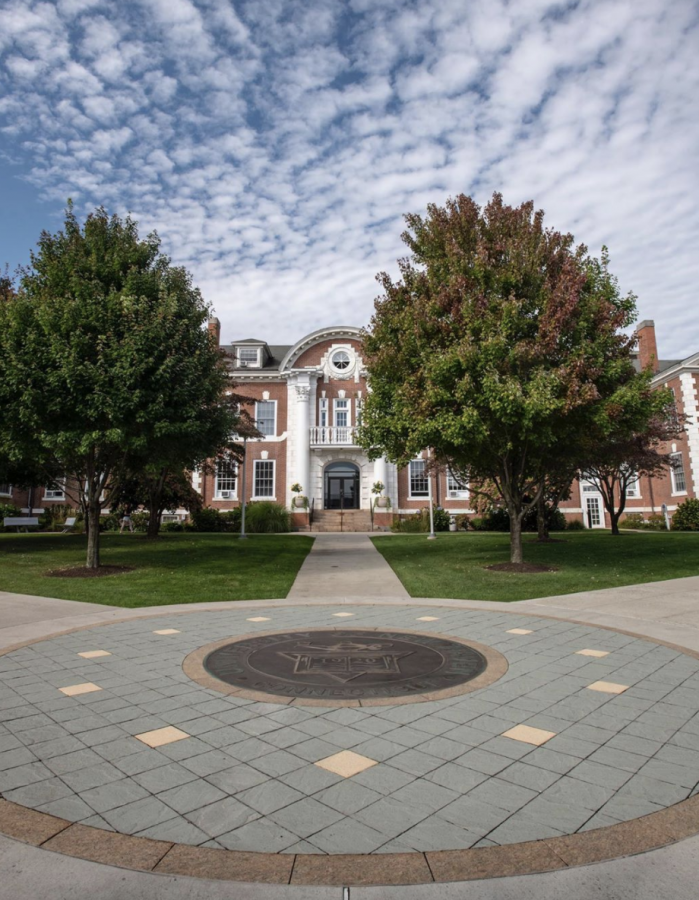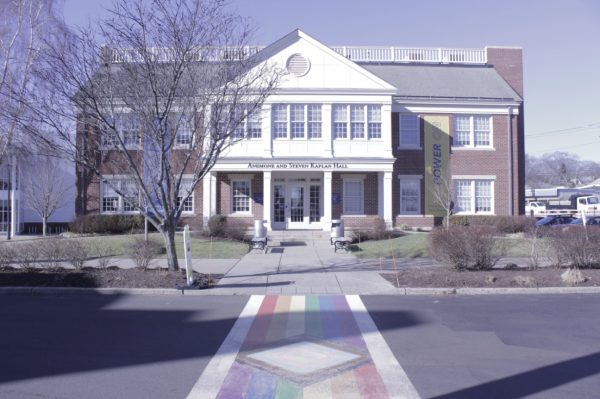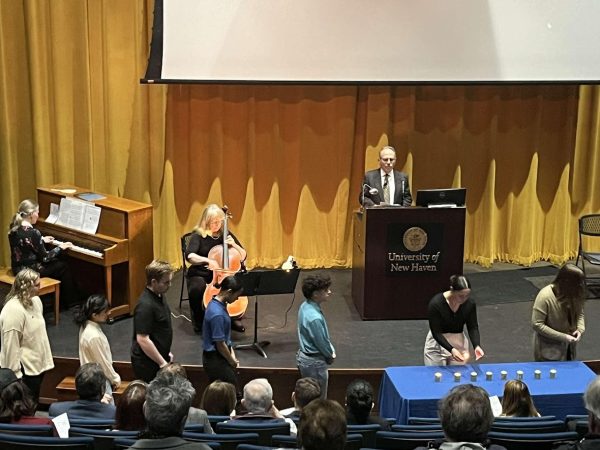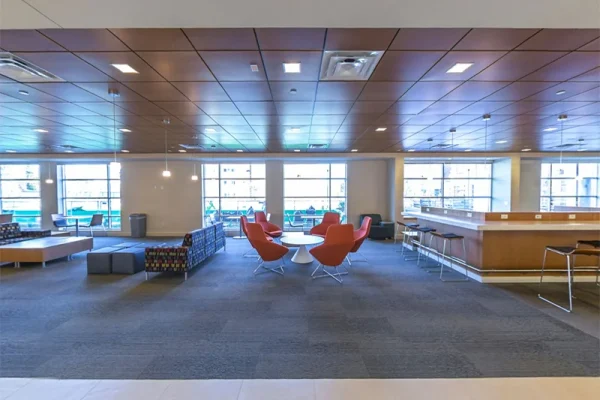“It’s all about the students”: What University of New Haven professors think about returning to campus in the fall
Professors at universities across the country have been expressing their concerns about their return to campus amid the coronavirus. However, at the University of New Haven, professors say they are looking forward to returning for a slightly different semester, although some are equally uneasy about their and their family’s health.
Universities nation-wide say on their websites they devoted to making reopenings as safe as possible, with measures that include required COVID-19 testing for all students planning to return to campus, increased remote classes, required face masks at all times, and more virtual meetings and events.
Mario Gaboury, interim provost and senior vice president for academic affairs, announced the university’s plan for the fall in a July 27 email.
Although there has been a flood of professors across the country saying they rather not step foot on campus until there is a semi-permanent solution to the coronavirus, UNH professors are not that concerned with returning to campus.
Michael French, practitioner in residence in the health sciences department, says he feels “cautiously optimistic” about his return to campus this semester.
“I appreciate the administration supporting the faculty and the staff and trying to uphold safety, but also I think it’s supportive of the students as well to keep them safe,” said French. “Most of what’s happening right now isn’t going to be solved by one person or one group. It’s going to take an effort from everybody and the policies that are put in place are going to allow for everybody to do their part more easily.”
According to Kristen Przyborski, director of the university’s common course, administration has done a great job keeping professors informed and trying to keep the campus community safe.
“I think the COVID-19 task force really has done such an amazing amount of work this summer,” said Przyborski. “I give so much credit to all of them. I think there’s a lot for them to worry about.”
French agreed, saying, “The administration has been great at keeping us in the loop on everything that we’re going to need and making sure we’re empowered to handle possible negative situations if they were to arise, but also making sure that we have access to what we need to do our jobs safely.”
As for worries about contracting the virus, professors say that they are concerned, but that it’s normal to feel this way.
“The worry is always there,” said French. “There’s no way to be risk exempt right now. It’s balancing those risks, trying to feel as comfortable and safe as you can, putting trust in those measures in your students and other faculty members and everything else.”
Przyborski says she is not fearful of returning to campus in the fall but will “minimize my time on campus as much as I can.”
On another hand, some professors find themselves concerned about returning to campus, such as history professor April Yoder, who is worried about her health and her husband’s health as he is in the high-risk category. She has chosen to teach remotely through the fall semester.
“It’s mostly a fear of contracting COVID because my husband has a heart condition,” said Yoder. “I’m also actually hoping that I’ll be pregnant by the time school starts, so there’s that too. I’ve been doing fertility treatments for the last year, so if I got pregnant and then something happened because of COVID, I would be pretty pissed.”
The professors also believe that the university is doing the right thing by keeping classes online, hybrid, or in-person. However, there is also concern for students.
“For this semester, it’s harder to keep students engaged,” said Yoder. “Both students and faculty have to work harder to stay engaged and kind of build a community and keep up with each other. Communication is an extra challenge, and I tried to design my classes with that in mind. There’s also something called ‘Zoom fatigue,’ so I also wanted to avoid that.”
“It’s all about the students,” Przyborski said. “The first two weeks, in particular, we all just really want to make sure we get everyone in a good routine – it’s all new and different.”
“I think with everything in place, as long as we all adhere to the procedures,” said French, “we can do this as safely as anything else in our lives right now – as safely as going to the grocery store or as socially distanced seating at a restaurant. Not everyone feels comfortable going to a restaurant right now and that’s okay, that’s why we’re also offering a ton of online classes.”
Universities nationwide have had to shut down and hold fully remote class sessions within weeks or days of reopening because of a surge in COVID-19 cases on their campuses.
Yoder said that she thinks it will be difficult to get full cooperation from the campus community, “I hope we stay open, but I think it’s going to be hard.”
French, however, thinks that the fact that Connecticut has had fewer cases recently will allow for the university to remain open and operational throughout the semester.
“You look around the nation right now,” said French, “and you see how many universities have tried to open and needed to close and that can be disheartening, but when you look, you see that not only were those states further behind than we are in terms of their general numbers because their universities didn’t have the same policies that we have about masks on campus and other ways of protecting ourselves through social distancing.”
Przyborski also thinks that the university and its task force have taken the necessary steps to ensure a safe return to campus and to prevent any campus closures but that the university should implement more testing.
“It’s very difficult for anybody to have the money,” she said, “and just the logistics that come with testing such a huge amount of people. I wish that we can find our way through that just so we can test more frequently. But I 100% think that they are doing everything they can and that they’re incredibly competent.”
“2020 is not a year of certainty,” said French about the university’s efforts, “but our policies are encouraging.”
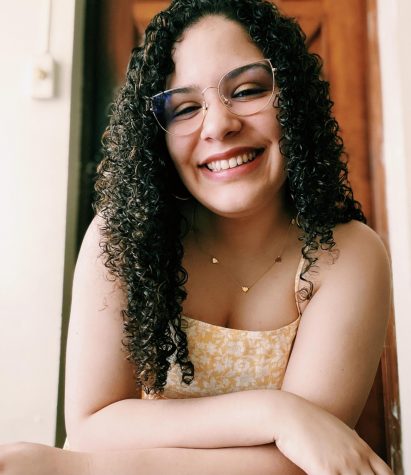
Amanda is a senior majoring in communication with a concentration in journalism, and a double minor in political science and English. She has been involved...

